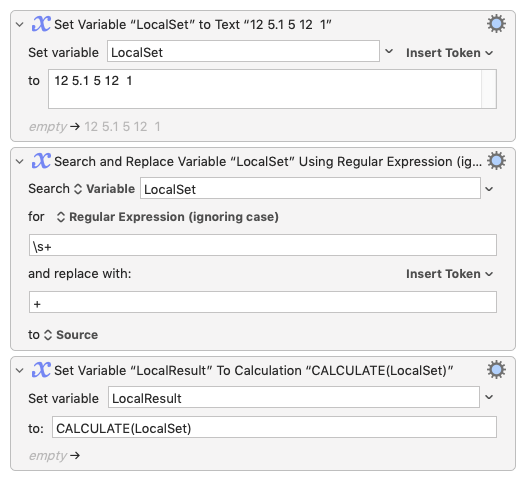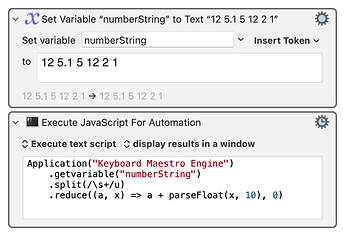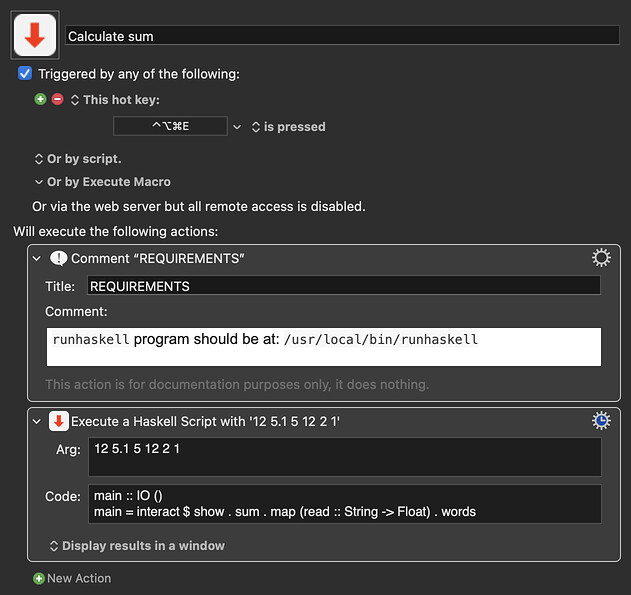While I'm Okish at RegEx, I'm struggling with something that seems simple but is making my brain explode a touch
a set of numbers which could be up to 11 'groups' but more usually 5-6
for example
12 5.1 5 12 2 1
If I know there are 6 numbers I can copy the set of numbers, Search System Clipboard Using Regular Expressions to find
([0-9.]+] ([0-9.]+] ([0-9.]+] ([0-9.]+] ([0-9.]+] ([0-9.]+]
Setting each group as a variable one, two, three, four, five, six
Then I want the sum of those numbers to be calculated and pasted over them
Insert Text %Calculate%one + two + three + four + five + six% by Pasting
Which works fine.
But how can I calculate the number of numbers and turn them to variables? Or am I over complicating?
tiffle
2
This is quite easy:
Replace the whitespace in your set of numbers with a + and then use KM to calculate the result like this:
Test Calculate.kmmacros (2.0 KB)

The "pasting over them" I will leave as an exercise for you!
I forgot to say: I'm assuming all you really want to do is add up the numbers...
1 Like
Oh cool, will have a play, thank you!
In a scripting language you can typically use more split and less regular expression complexity:
Expand disclosure triangle to view JS Source
Application("Keyboard Maestro Engine")
.getvariable("numberString")
.split(/\s+/u)
.reduce((a, x) => a + parseFloat(x, 10), 0)
1 Like
I would certainly never have got there 
Thank you both
1 Like
tiffle
6
Is yours is really less complex?
My regex is \s+ and stands alone
while yours is /\s+/u and is embedded in some JS.
No – addressing the OP : -)
FWIW, a Haskell solution.
Calculate sum.kmmacros (3.2 KB)
Haskell Code
main :: IO ()
main = interact $ show . sum . map (read :: String -> Float) . words
1 Like




